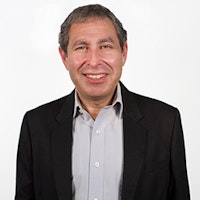Super changes concern two-thirds of trustees
|
Summary: If you were concerned about the recent government changes to superannuation, you're not alone, according to the latest Vanguard / Investment Trends SMSF Report. |
|
Key take-out: The number of SMSF trustees shifting their asset allocations to more defensive investment positions has increased. |
Almost 70 per cent of self-managed superannuation fund trustees have expressed some level of concern over the Federal Government's recent changes to super legislation.
That's one of the stark findings in the just-released 2017 Vanguard/Investment Trends SMSF Report, with trustees holding more than $2.5 million in their fund being especially agitated by the new $1.6 million superannuation and pension account limits imposed from July 1.
Overall, 31 per cent of trustees had no concerns about the recent rule changes to super contributions. However, 30 per cent had some concerns, 24 per cent were somewhat concerned and 13 per cent were very concerned.
Of the trustees with balances of more than $2.5 million in their SMSF, only 18 per cent had no concerns and 27 per cent were very concerned.
The survey of more than 3,000 SMSF trustees, 470 financial planners and 900 accountants also projects that a high number of fund trustees are making changes to their asset allocations, in part due to their own bearish market return expectations.
While 114,000 trustees shifted their asset allocation to a more defensive position, up from 107,000 in 2016, the number of trustees who adopted a more aggressive stance this year also grew strongly, to 57,000 from 37,000.
Yet, despite the high degree of concern and uncertainty evident across the SMSF sector, total fund numbers are continuing to grow.
Vanguard and Investment Trends calculate in the report that SMSF assets rose 8 per cent to $645 billion over the last year – the largest annual increase in three years – while the number of SMSF accounts grew 4 per cent to 585,000.
“Self-managed super continues to be an appealing option for many Australians, but trustees have expressed concerns about the changing regulatory environment,” Investment Trends Research Director, Recep III Peker, said.
“Although the number of SMSFs continues to grow each year, the rate of growth has slowed over the last four years. This could have partly been in response to uncertainty around changes to superannuation contribution and pension caps, which would be of particular concern to many trustees, given their typically higher than average balances.
SMSF trustees continued to show a strong appetite for exchange-traded funds (ETFs) and residential property, while blue chip and high-yielding Australian shares also remained high on the investments agenda.
“We've seen a gradual improvement in the diversification of SMSF portfolios over several years,” Vanguard Australia Head of Market Strategy and Communications, Robin Bowerman, said, “but a clear bias toward the local share market and property persist.
“This is understandable, given Australian's long-held affinity with direct property investment and with the flow of franking credits from Australian shares. But by excluding less familiar asset classes like international shares and bonds, SMSFs are depriving themselves of some highly valuable opportunities for diversification.”
Fifty-five per cent of SMSF trustees said more than half of their portfolio was invested in one investment type, down from 60 per cent in 2016, with 35 per cent concentrated in Australian shares, 7 per cent in residential property and 9 per cent in cash or cash products.
















